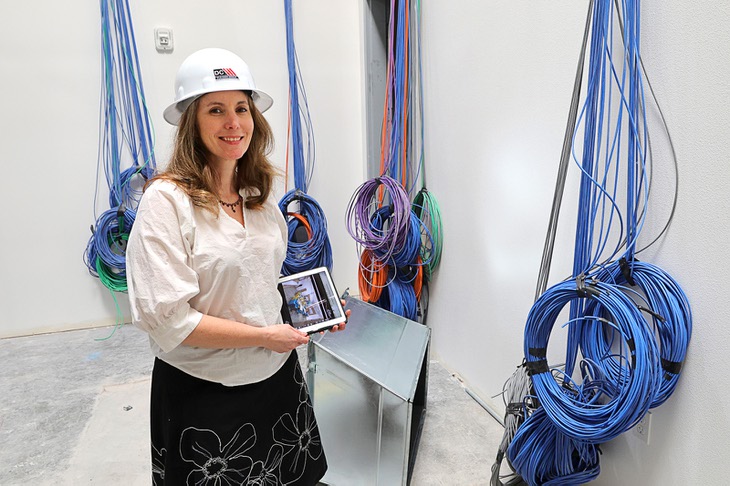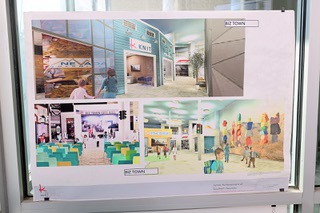Junior Achievement of Southern Nevada is developing a facility to provide young people “the tools to dream big” while learning about business and personal finances, organization officials said.
Junior Achievement is transforming a 40,000-square-foot building on Tropicana Avenue into an Inspiration Center to accommodate its BizTown and the Finance Park programs.
The facility, which will also house the group’s administrative offices, will be able to serve up to 60,000 students annually, triple the current capacity.
“Junior Achievement teaches K-12 youth about the ‘business of life’ through financial literacy, entrepreneurship and workforce development,” according to a statement from the group.
In BizTown, students participate in a simulated economy where they have mock jobs and use play money to make transactions at faux banks and businesses. Some of the partner businesses included as storefronts include Google, Five Guys, Caesars Foundation, UNLV and PNC Bank.
BizTown also has its own mayor and students participate in voting.
Finance Park is a budgeting simulation where students are given a set of life circumstances and must learn to budget for them—similar to games like Monopoly or The Game of Life.
Junior Achievement of Southern Nevada President and CEO Michelle Jackson said there is a strong need for financial literacy programs in Las Vegas.
The Valley has one of the highest bankruptcy rates in the United States, she said.
“There’s also a high percentage of households that don’t have secure employment, what would be considered secure employment,” she said.
The program teaches participants budgeting skills and how to differentiate between needs and wants. Jackson said it also tackles some lessons about credit.
“Sometimes we see a lot of students that come from low-income families. They’re actually scared of credit,” Jackson said. “Credit can be a great financial tool if you know how to make it work for you.”
Another subject the program covers is generating wealth using tools such as 401(k) and Roth IRA investment accounts, as well as the stock market.
Through these lessons, the program aims to instill certain values and beliefs in the students, Jackson said.
“The value of self-reliance is that it does not matter where you come from,” Jackson said. “You don’t have to be a product of the current environment that you live in.”
By mentoring students and having them participate in a simulated economy, the program aims to prepare them for the real world.
Director of Community Engagement Shanice Stevens has seen the program impact students by giving them confidence.
Students embrace the programs, she said. So, a student who is elected mayor, for instance, may show up in a suit and tie to play the role, he said.
The program is “really giving students the tools to dream big and giving them the blueprint on how that may work for them,” she said.
The program also helps students start focusing on future careers—and not just on how much money they might make but on what they would love to do, Jackson said.
“That’s huge,” she said. “That affects your emotional health, your just overall happiness in life.”
When students learn financial literacy from a young age, they become adults who know how to better manage their finances—whatever their income level—and need less outside support, Jackson said.
Jackson said that opens up resources to further improve the community.
“So now we have our philanthropists in the community that are not worried about making investments just to keep people fed because people are doing that on their own and they can redirect investments to other things in our community—whether that’s health care or the arts or even education,” Jackson said.
Financial literacy has a lot to do with financial independence, Jackson said.
“I think most young people want to be able to live on their own and buy their own home someday, own a vehicle. And you really can’t do that without understanding how financial literacy works, understanding the basics of it.”

